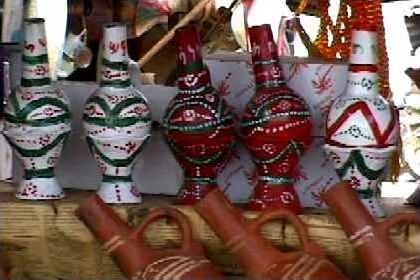Facts About Jebena
The Jebena is a revered traditional coffee pot used in Ethiopia, Eritrea, and Sudan for brewing and serving coffee, known locally as buna. It plays a central role in the traditional coffee ceremony, a social event where women serve coffee to guests along with snacks. Typically made of clay, the Jebena features a neck, spout, and handle. Interestingly, in Ethiopia, the Jebena has a separate spout for pouring coffee, whereas in Eritrea, a single spout is used for both water and coffee.
The Jebena's history is intertwined with the origins of coffee in Ethiopia, dating back to around 1100 A.D. It holds deep cultural significance in Ethiopian and Eritrean societies, often being passed down through generations as a treasured heirloom. The Jebena is more than just a coffee pot; it symbolizes womanhood, social gatherings, and status within these cultures.
The design of the Jebena can vary by region, with different areas showcasing unique styles and decorations. It's an essential part of the buna ceremony, which involves brewing coffee three times a day. The youngest woman in the household typically initiates the ceremony, brewing the coffee in the Jebena and serving it in three stages.
For Ethiopians living abroad, the Jebena is a tangible connection to their homeland, helping to maintain cultural traditions and rituals. It symbolizes identity and heritage for migrant families. The ceremony itself is a communal experience that involves roasting, grinding, and brewing coffee in the Jebena, all while socializing and savoring the process.

 Ethiopia
Ethiopia